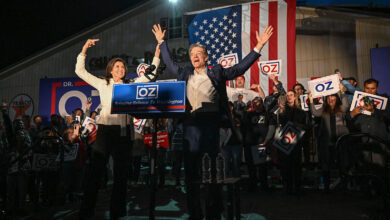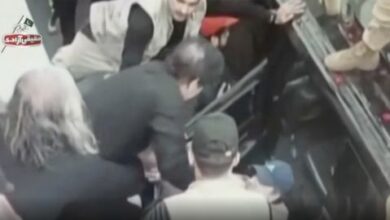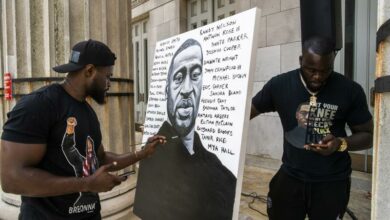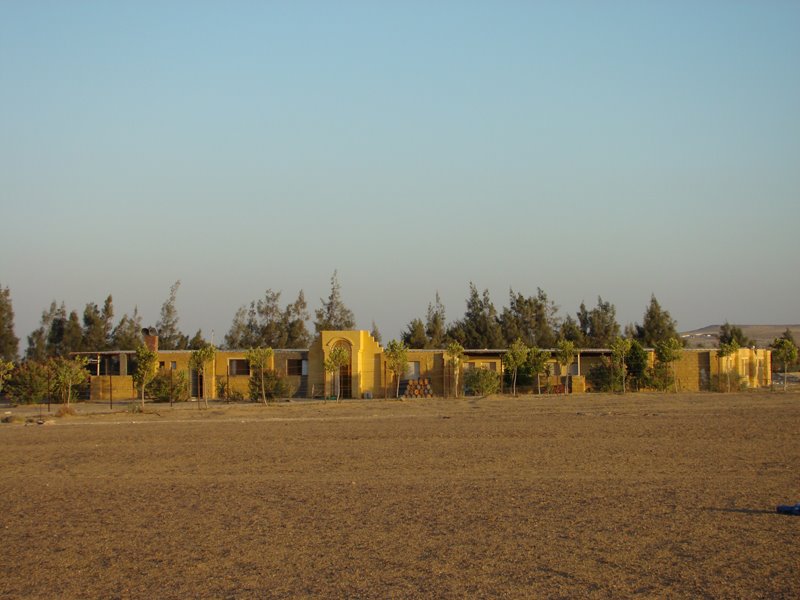For the past two decades, the Egyptian desert has been the premier destination for rally-car races. This vast wilderness, which varies in terrain from the jagged mountains of Sinai to the silky sand dunes of the Western desert, provides off-road racers with every challenge they could wish for. But the sport has not yet caught on with Egyptians and local racers remain a rarity among the mostly European participants, even in events such as the Pharaoh’s Rally and Pyramids Rally.
Enter the Egyptian Federation for Motor Sports.
The Egyptian Federation for Motor Sports (EFMS), founded in 2007, is an organization with a mission: to encourage the growth of motor sports in Egypt by raising awareness, organizing and promoting events, and–perhaps most importantly–producing drivers of a high enough caliber that they might one day represent their country as a national rally-car racing team, as opposed to just hosting events for foreign competitors.
The members of the EFMS are serious and passionate about their work. Their dedication ultimately led to the National Sports Council’s decision to appoint them as the official regulators of all motor sport and karting events in Egypt. This two-month-old decision was a giant leap forward in terms of recognition for local racers. As a result, the EFMS has been toiling away, ensuring that they are more than capable of carrying out the responsibilities at hand, which include three races this year. The Egypt Rally Cup, which began earlier today in el-Gouna, is the first of these races.
“Yes, we started small, much smaller than this,” says Halim Abu Seif, an EFMS board member, as he looks out at the scene before him–a bustling crowd of Egyptian racers, navigators, mechanics, and tar-fingered assistants, all busy putting last-minute touches on their souped-up supercars, which are about to depart for a two-day race over 400km of desert outside el-Gouna in Egypt’s Eastern desert.
“Today we have the highest ever recorded number of Egyptian racers. For last year’s event, we had ten, which, at the time, was a huge accomplishment.”
The first Egypt Rally Cup was held last year in the Western desert, just outside of Bahariyya–a familiar region for veteran racers. This year, EFMS organizers decided to try a different location, settling finally on el-Gouna as a starting line. “When you start from Cairo, your options are limited,” says Abu Seif. “There’s only one direction you can really go, and that’s towards the Western Desert.”
“We chose El-Gouna for a couple of reasons,” the 50-year-old organizer explains, his voice barely audible over the din of 15 excited engines. “First and foremost is the terrain. The Hurghada desert, which is covered with rocks and mountains, is totally different from the Western Desert. Also, it has some exceptionally beautiful scenery."
The EFMS places a priority on providing racers with different challenges to test and improve their skills. “Our aim is to produce racers who are prepared to participate and excel in all sorts of international events,” says Abu Seif, citing the determination that resulted in one of the more unusual, and inspiring, aspects of the EFMS—its own driving school.
“We have a rally school, consisting of a program that lasts three to four months,” beams Abu Seif. According to him, participants can learn everything there is to know about off-road rally racing, provided they are over 21 years of age, have their own car and, of course, a valid driver’s license. “We teach them all the theoretical and practical aspects of rally racing and, once they are prepared, take them out to the desert.”
Ultimately, Abu Seif and the other members of the EFMS, hope that the school will promote the sport and encourage aspiring racers to seriously consider turning professional.
Despite his desire to see more young people behind the wheels of rally cars in competition, Abu Seif is quick to point out that safety must be a top priority. The most important things racers need to remember, Abu Seif explains, are the rules and regulations. “The point is not killing yourself and your car. These types of races are not about speed, but skill.”
Like most of the EFMS’s board members, Abu Seif is a veteran racer. Since the 1980s he has participated in numerous rallies, though his experiences were slightly different from those of the racers currently surrounding him. “I raced dirt bikes,” he recalls, smiling. “I raced them pretty fast but soon found that to be a problem–you can’t just go full throttle all the time. The point of a race is to cross the finish line, and I was constantly unable to do that because I kept smashing up my bikes. You crash your bike once, and that’s it. As far as you’re concerned, the race is over.”
Since then, Abu Seif has made the transition to the managerial side of motorsports, first through his position as president of the Jeep Club–soon celebrating its tenth anniversary–and later, as a board member of the EFMS.
But despite his range of experience and his obvious passion for fast machines, Abu Seif claims that shaping the EFMS into the influential organization it is today was no easy task. “It was an incredible challenge to initiate all this from nothing," he says. "All the issues with authorities and traffic regulations and the ministry of interior–it’s still difficult. And on top of that, we still have to fulfill our roles as regulators adhering to FIA codes, making sure all the cars are safe and the drivers well-equipped.”
To its credit, the EFMS has risen up to the task, recruiting a reliable, professional-level team of passionate volunteer assistants and organizers, as well as sending its official time-keepers to specialized seminars which they are in no way guaranteed to pass. In short, if there’s one definitive characteristic of the EFMS, it’s passion-driven determination.
“This isn’t the end of it,” says Abu Seif confidently, gesturing towards the scene before him. “The sky’s the limit, and we’re still growing. We want to attract more international races. We want to participate in more international races. Today, Qatar, Dubai, and Saudi Arabia all have rallies of their own. We started this long before them. For years now, we’ve seen foreigners come here and race professionally.”
“Now, it’s our turn.”




